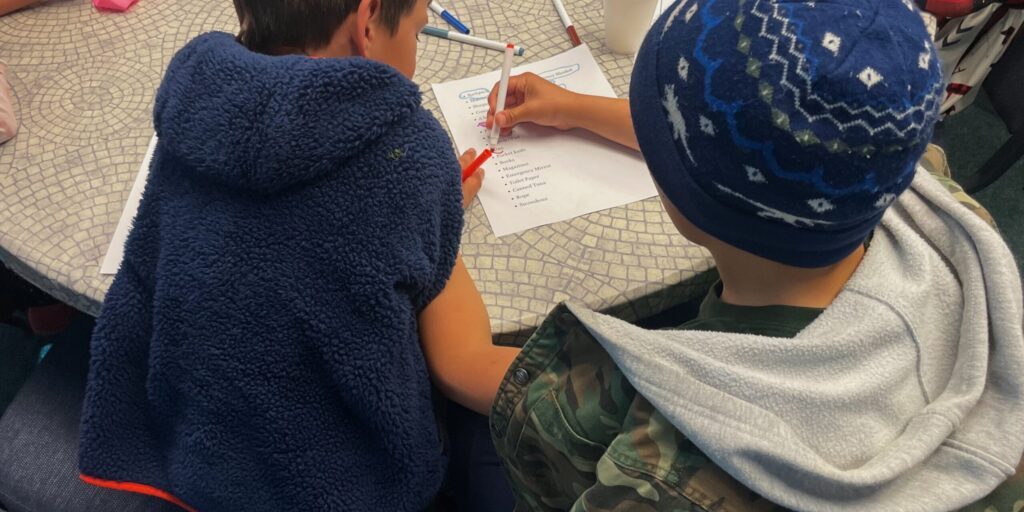The Bering Land Bridge National Preserve held its first Junior Ranger Program in Nome on Friday, July 7th. The program is geared towards children ages 6-12 although there is no age restriction in becoming a Junior Ranger. A signed permission slip was required to attend.
Attendees spent over an hour learning about survival in Arctic and Subarctic regions. Children learned about the region through team building games, crossword puzzles and learning about emergency equipment. The program was led by Nome grown Park Ranger Kat Scott of the Bering Land Bridge National Preserve.
The Bering Land Bridge National Preserve is made up of 27.5 million acres across the Seward Peninsula. The Preserve as stated on their website, “preserves to aim and protect a landscape that contains an invaluable record of flora and fauna, the history of human mitigation between Asia and North America and supports an ongoing tradition of subsistence culture.”
While sharing stories of her family’s subsistence, Scott says that the smallest ecosystem changes can affect subsistence activity.
I think the main reason is keeping the ecosystem intact, keeping the harmony between all of the animals and all the plants. Just a shift in like one degree of the weather can change, the waterways, the fish with how early spring gets or how late it gets.
Programs like the Jr. Ranger Program teaches children how to be safe when encountering wildlife and what to do if there’s an emergency. Scott adds this piece of advice to anyone who visits a national park:
If you pack it in, pack it out. I think that’s a golden rule and always like, also making sure it’s better where you left it. So that includes taking what you bring in and also picking up any other trash that is left around.
The rangers completed their respective activities, earning the official title of Jr. Ranger. Children were awarded with high-fives and stickers to celebrate their achievement.
Image at top: Two boys determine what is important to pack in an emergency kit




